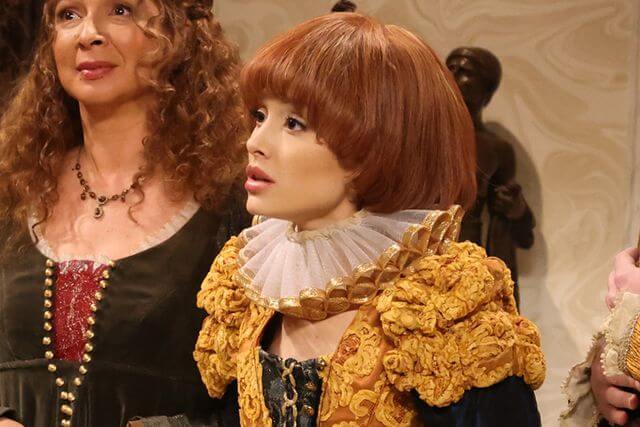World News
Ariana Grande Unpacks the Lasting Impact of Her SNL Character “Antonio” in Therapy
Ariana Grande has recently opened up about an unexpected revelation in her therapy journey—processing her SNL character, “Antonio.” Known for embodying quirky and intense personalities, Grande’s commitment to her characters often runs deep, and this one has lingered longer than she anticipated. Here’s a deeper look at Grande’s experience, the character’s effect on her, and what this reveals about the connections performers form with their roles.
Ariana Grande’s Relationship with Her Characters
Ariana Grande’s talent as a performer is undeniable, spanning music, acting, and even comedy. When she appeared on Saturday Night Live in a skit as Antonio, the eccentric and talkative waiter, she gave the character a vivid, memorable personality. This wasn’t just another role for Grande; she brought the character to life with a level of commitment that both entertained fans and allowed her to explore a new side of her creativity. Grande’s experience with Antonio highlights how characters can sometimes impact actors personally, leaving a lasting impression.

The Unexpected Impact of Playing Antonio
What’s fascinating about Grande’s journey with Antonio is the depth of reflection it’s sparked for her. Grande has described her time with the character as fun and intense but admits that Antonio’s personality has stuck with her in ways she hadn’t anticipated. This experience suggests how even a comedic or seemingly lighthearted role can hold unexpected emotional layers for an actor. Her acknowledgment of processing Antonio in therapy shows a growing awareness among performers about the importance of separating from the intensity of their roles.
The Psychological Effects of Acting and Character Immersion
Actors frequently immerse themselves in their roles to deliver authentic performances, often channeling emotions that resonate with or challenge them. While this method of acting enhances performances, it can sometimes leave a residual effect, especially with intense or emotionally charged characters. For Grande, Antonio may have been a comedic role, but the exaggerated traits and distinctive mannerisms she adopted seem to have created a lasting impact. This phenomenon is not unique; many actors find themselves influenced by the characters they play, which underscores the importance of boundaries in performance art.

Grande’s Journey in Therapy: Processing Roles and Their Residual Effects
Grande’s discussion about processing Antonio in therapy offers insight into her personal growth and dedication to mental health. Therapy provides a safe space for her to explore the boundaries between herself and her roles. It also underscores her commitment to self-reflection, recognizing that some characters can leave a lasting emotional or psychological imprint. Her approach to therapy highlights the importance of self-awareness for actors and the need for a healthy separation from their on-screen personas.
What This Means for Performers and Their Relationship with Art
Grande’s experience with Antonio and her therapeutic journey reflects a broader conversation in the entertainment industry about the long-term effects of acting on personal well-being. Her openness about seeking therapy encourages other performers to consider the importance of mental health support as part of their craft. For fans, it’s a reminder that behind each character, there’s a person dedicated to delivering a performance that resonates. Grande’s story may inspire greater appreciation for the art of acting and the emotional investment it requires.
From dragontrendtees


